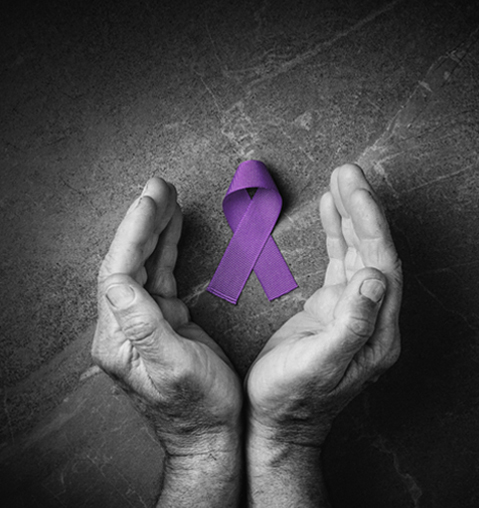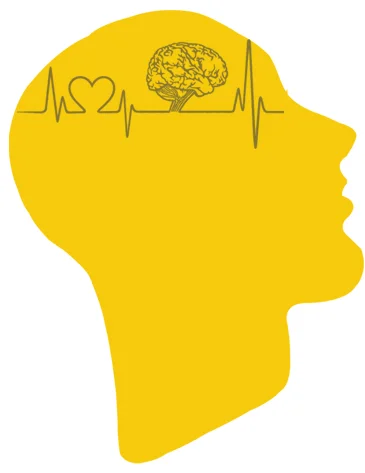Epilepsy Treatment
Staying a step ahead of Epilepsy with comprehensive care
Epilepsy Treatment Centre

Symptoms of Epilepsy Disorders
Seizures can disrupt any brain-coordinated process as epilepsy is brought on by unusual brain activity. Some seizure warning signs and symptoms include:
- Temporary confusion
- A period of gazing
- Stiff muscles
- Uncontrollable jerks
- Loss of awareness or consciousness
- Psychological signs like anxiety, fear, or déjà vu
The type of seizure determines the specific symptoms. The symptoms will be consistent from episode to episode since, in the majority of situations, a person with epilepsy tends to experience the same sort of seizure every time.
Causes of Epilepsy Disorders

About half of those who suffer from epilepsy have no known etiology. The condition in the other half can be attributed to several things, such as:
- Genetic disorder : Some forms of epilepsy run in families and are classified by the sort of seizure you have or the area of the brain that is affected. There most likely is a genetic component in these circumstances. Various forms of epilepsy to particular genes, but for the majority of people, genes account for just a portion of the disease’s causes. A person’s susceptibility to seizure-inducing environmental factors may be increased by specific genes.
- Brain injury : Epilepsy may arise after head trauma from a vehicle accident or another traumatic event.
- Improper Brain Function : Epilepsy can be brought on by abnormalities in the brain, such as brain tumors or vascular anomalies including arteriovenous malformations (AVMs) and cavernous malformations. The major cause of epilepsy in persons over the age of 35 is stroke.
- Infections : Epilepsy can be brought on by meningitis, HIV, viral encephalitis, and various parasite illnesses.
- Birth Damage : Babies are vulnerable to brain injury before birth, which can be brought on by several things, including a mother’s illness, inadequate nourishment, or oxygen deprivation. Epilepsy or cerebral palsy may be the outcome of this brain injury.
Types of Seizures include
1.Focal Seizures : Seizures are referred to be focal seizures when they seem to be caused by abnormal activity in just one part of your brain. There are two types of these seizures:
- Focal seizure without losing consciousness : These seizures, which were once known as simple partial seizures, don’t result in unconsciousness. They may modify feelings or affect how objects seem, feel, sound, or smell. Some people get déjà vu. Additionally, this kind of seizure can cause an uncontrollable jerking of one body part, such as an arm or leg, as well as sudden sensory sensations including tingling, vertigo, and flashing lights.
- Focal seizures accompanied by altered consciousness : These seizures, which were once known as complex partial seizures, include a shift or loss of consciousness or awareness. This kind of seizure could make you feel like you’re dreaming. You could look off into space, not react normally to your surroundings, or make repeated actions like rubbing your hands together, chewing, swallowing, or walking in circles during a focal seizure with decreased consciousness.
Focal seizure symptoms might be mistaken for those of other neurological conditions such as migraine, narcolepsy, or mental illness. To identify epilepsy from other illnesses, a comprehensive examination and tests are required.
2. Generalized seizures : Generalized seizures appear to affect all parts of the brain and are distinguished from focal seizures. Generalized seizures come in six different varieties.
3. Absence Seizures : Petit mal seizures, sometimes referred to as absence seizures, usually affect young children. They only endure for 5 to 10 seconds and are characterized by blank stares, with or without slight body movements like eye blinking or lip smacking. These seizures can happen in clusters, up to 100 times each day, and they can briefly render a person unconscious.
4. Tonic Seizures : Muscles become tight during tonic seizures, and consciousness may be impacted. Your back, arms, and legs are typically affected by these seizures, which might make you lose your balance and fall to the ground.
5. Atonic Seizures : Muscle control is lost during atonic seizures commonly referred to as drop seizures. You frequently collapse or drop to the ground as a result of this since it most frequently affects the legs.
6. Seizures with Clonus : Clonic seizures are characterized by jerking, repetitive, or rhythmic muscular movements. The arms, face, and neck are typically affected by these seizures.
7. Myoclonic Seizures : The upper torso, arms, and legs are typically affected by myoclonic seizures, which typically present as quick, short jerks or twitches.
Epilepsy Treatment
NHS Neuro Care is committed to offering patients with seizure disorders high-quality care. Children and adults can both be treated by our experts, and we work closely with patients and families to offer assistance at every step of care. Whether you have had seizures for a short time or have been dealing with them for a long time.
Treatments
Social links
Contact us
NHS Hospital, Near Sports College, 300m From Kapurthala Chowk, Jalandhar, Punjab, India. Pin code : 144008
neurocare@nhshospital.in
+91 9888173033
0181 4633333
